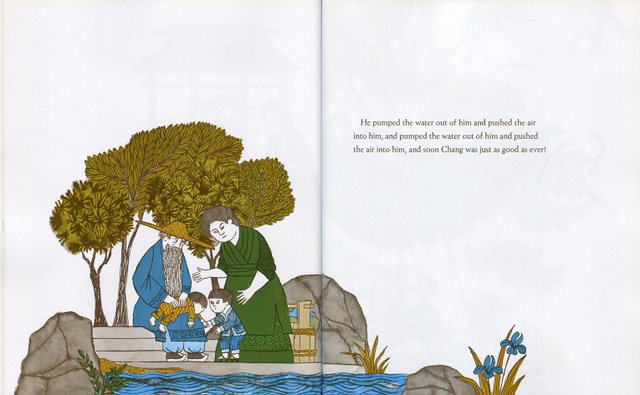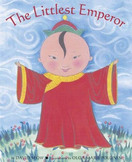
First the younger son takes a tumble, leaving his brother to find help from his fairly nonchalant mother, and then from an older gentleman in the village with a ladder. Each day the children play around a dangerous object (in the case of this story, a well), and despite being warned of the danger by their mother, they fall in. Like fables do, there are lessons to be learned. The mother’s first born son is named Tikki Tikki Tembo-no Sa Rembo-chari Bari Ruchi-pip Peri Pembo, which (for the story’s purpose only) means “Most Wonderful Thing in the Whole Wide World”, while the younger son has a monosyllabic name that (unjustly) means “little or nothing”. The injustice of this fable is not lost on my own little one. The story is based on an invented Chinese custom whereby children are named in certain ways based on their birth order. Tikki Tikki Tembo, retold by Arlene Mosel and illustrated by Blair Lent, is one of those books. Occasionally it gets a bit predictable and tiresome for the reader, but repetition is a valuable early reading tool, particularly in texts that already have a repetitive structure. Rut actually has a negative connotation, but I don’t really think this sort of nightly repetition is a bad thing. “In the true sense ones native land, with its background of tradition, early impressions, reminiscences and other things dear to one, is not enough to make sensitive human beings feel at home.Both my girls often get into reading ruts.

“Pilate with his question What is truth? is gladly trotted out these days as an advocate of Christ, so as to arouse the suspicion that everything known and knowable is an illusion and to erect the cross upon that gruesome background of the impossibility of knowledge. “Silence is the universal refuge, the sequel to all dull discourses and all foolish acts, a balm to our every chagrin, as welcome after satiety as after disappointment that background which the painter may not daub, be he master or bungler, and which, however awkward a figure we may have made in the foreground, remains ever our inviolable asylum, where no indignity can assail, no personality can disturb us.

Read more about this topic: Tikki Tikki Temboįamous quotes containing the word background: The 1961 story ends with the boy's death by drowning, which was ironic because the parents had believed that giving children long names would cause them to live long lives.
#TIKKI TIKKI TEMBO STORY PRO#
It is possible that a recorded 1960 version of the story called "Long-Name-No-Can-Say" with a fat elder brother named "Nicki Nicki Tembo No So Rembo Oo Ma Moochi Gamma Gamma Goochi" was the first to change it to a Chinese setting.Ī similar story is told in the American folksong "(Eddie Kucha Kacha Kama Tosa Nara Tosa Noma) Sama Kama Wacky Brown" recorded in 1960 by the Brothers Four on their eponymous first album the title character "fell into the deep, dark well" and drowned.Ī story published in 1961 by Golden Press, called "The Little Boy With the Long Name", featured an older brother named "Sticky Sticky Stumbo Nos E Rumbo E Pro Pennyo Hara Bara Brisko Nicky Prom Po Nish No Mennyo Dumbricko".

In 1924, the National Association of Junior Chautauquas published a book that contained a story by an anonymous author entitled "Tiki-Tiki-Tembo" the story concerned a boy "in old Japan" named "Tiki-tiki-tembo-no sa rembo-Hari bari broohski-Peri pen do-Hiki pon pom-Nichi no miano-Dom bori ko." Toward the end of the 1924 story, it is stated that after falling into the well, the title character "never grew up to be a fine Japanese man." A book published in 1968 (the same year as Tikki Tikki Tembo) reprinted the 1924 version of the story. Specifically, it has been suggested that the story originated from the very similar Japanese rakugo about Jugemu Jugemu Gokō-no surikire Kaijarisuigyo-no Suigyōmatsu Unraimatsu Fūraimatsu Kūnerutokoro-ni Sumutokoro Yaburakōji-no burakōji Paipopaipo Paipo-no-shūringan Shūringan-no Gūrindai Gūrindai-no Ponpokopī-no Ponpokonā-no Chōkyūmei-no Chōsuke. However, the story is thought to have come from Japan rather than from China. as a child" and that the book is "her own retelling" of it. The publisher states that the author "first heard the story.


 0 kommentar(er)
0 kommentar(er)
